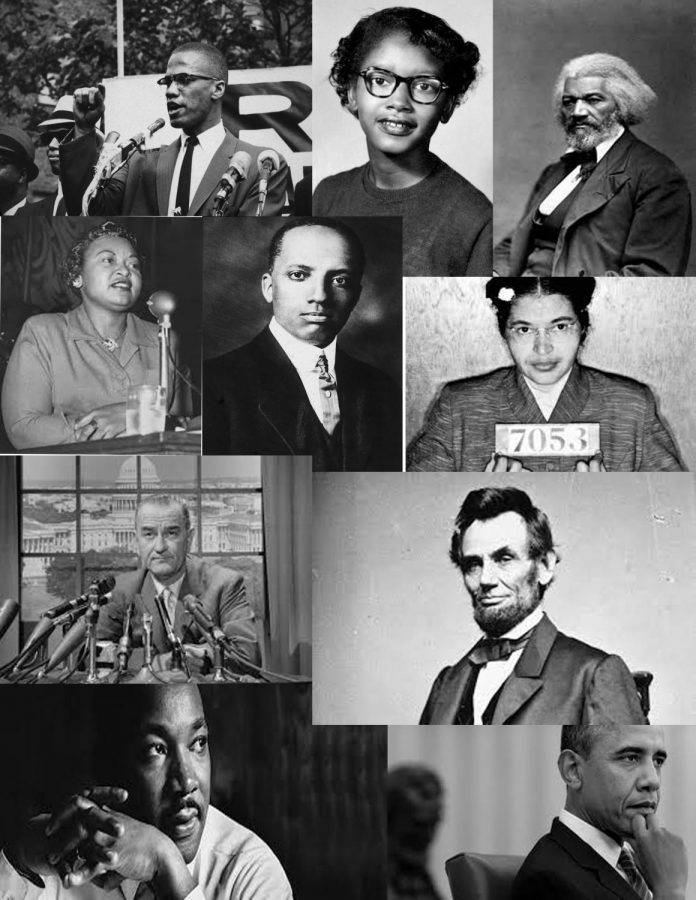Black History
When people think about Black History, their minds go straight to the Civil Rights Movement. While the movement drastically changed life as a whole, all of Black History is not from 1955 to 1968. August 2019 “marked the 400th anniversary of the beginning of American slavery” (The New York Times: 1619 Project). In August of 1619, a ship came into a port in Virginia carrying more than 20 enslaved Africans to be sold to colonists, thus, beginning the construction of America on the backs of enslaved human beings. Native Africans would become African American’s against their own will. Slavery would continue to go on in America for 246 more years until, with help from the Civil War, it was abolished by president Abraham Lincoln in 1865.
While African American’s were no longer enslaved, they were not equal. America, especially the South, would soon find another way of separating African American’s from white people: Jim Crow Laws. These laws segregated African American’s and white people from eating in the same places, drinking at the same water fountains, and even sitting in the same place at theaters. These laws are what sparked the Civil Rights Movement.
Many people only know of the most famous Civil Rights leaders like Dr. Martin Luther King Jr. and Rosa Parks, but there were many other people who assisted greatly in giving African American’s equal rights. People like Claudette Colvin, who was actually the first black woman to refuse to give up her seat. When asked to give up her seat she replied, “It’s my constitutional right to sit here as much as that lady” (Biography: Claudette Colvin). After her arrest, she was branded a troublemaker and was forced to drop out of college (Biography: Claudette Colvin). Malcom X also had a very big impact on the civil rights movement. He took a different approach from Dr. Martin Luther King Jr’s non-violent one. Malcom’s childhood was very troubled; it was filled with foster care, drugs, and grief, and as a byproduct, Malcom X was sent to jail at the age of 21. In jail, he learned about The Nation of Islam, “which married teachings of traditional Islam with messages of black empowerment” (History: Malcom X). Malcom then selected the last name “X” to represent his rejection of his “slave” (History: Malcom X). Abraham Lincoln was not the only President to help in the advancement of African American rights, the 36th President, Lyndon B. Johnson, signed the Civil Rights Act of 1964 and the Voting Rights Act of 1965. Both improved the lives of African Americans (History: Lyndon B. Johnson).
Carter G. Woodson started “Negro History Week” (Biography: Carter G. Woodson) in 1926 which is the week that both Abraham Lincoln and Fredrick Douglass’ birthdays coincide. Woodson was the second African American to receive a doctorate from Harvard, after W.E.B. DuBois. The actual month of February was not recognized as Black History Month until 1970, it was not originally an entire month. Today, people celebrate Black History Month in different ways. Some organizations hold events and convocations to discuss and educate people on black history. During the rest of the year Black History Month is not talked about especially in schools and could be acknowledged more.
Black History is much more than a month just like MLK day is much more than a holiday. It’s important to recognize our past as American’s because Black history is not only African American history, but a key part in American history itself.














